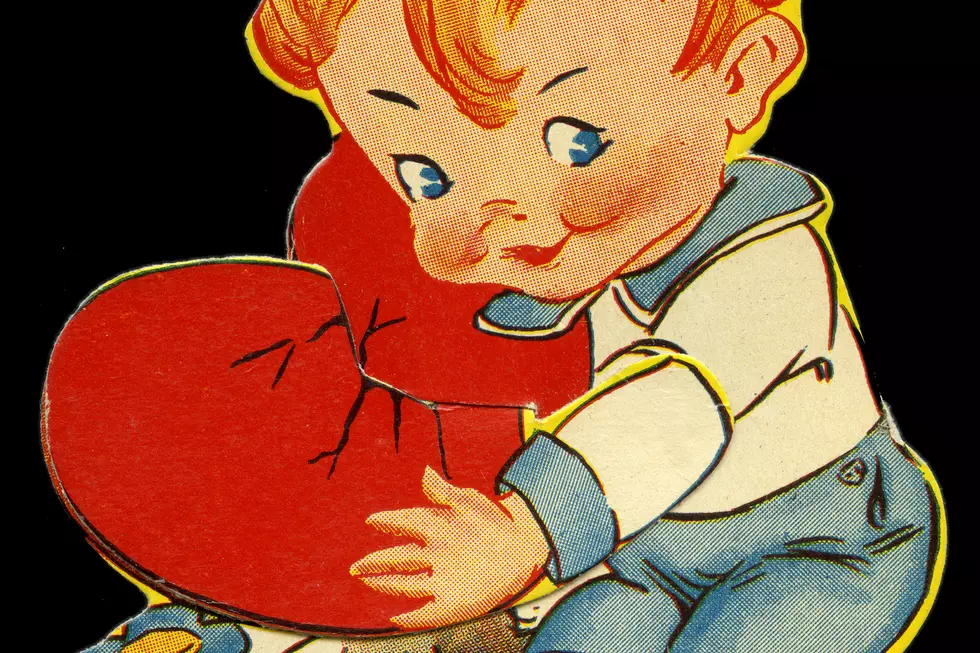
10 Best Factory Records Albums
Founded in 1978 by television host Tony Wilson and actor-turned-artist-manager Alan Erasmus, Factory Records is one of the most influential record labels in modern rock history. With the irreverent Wilson acting as the label's spokesperson, Factory not only introduced the world to trailblazing musical acts such as Joy Division, Orchestral Manoeuvres in the Dark and Happy Mondays, but it also emerged as a major influence in the graphics arena, thanks to artist Peter Saville's striking album and single sleeves. As groundbreaking as the label was, Factory left behind a frustratingly uneven discography littered with as many bold misfires as essential recordings. Having immersed ourselves in the label's deep catalog, we've created this list of the 10 Best Factory Records Albums to help guide your listening.
- Factory Records
Factory Records 10‘Harmony’ (1982)
The WakeComing out of the fertile Glasgow indie music scene of the early ‘80s, the Wake got signed to Factory with the help of late New Order manager Rob Gretton. The group took their sound into a poppy, twee-ish direction on their later work, but their output on Factory has more in common with the colder post-punk of Joy Division and Wire. ‘Harmony,’ the Wake’s debut album, featured none other than future Primal Scream frontman Bobby Gillespie on drums.
- Factory Records
Factory Records 9‘LC’ (1981)
The Durutti ColumnThe Durutti Column is the ongoing musical project of Mancunian guitarist Vini Reilly. ‘LC,’ No. 9 on our list of the 10 Best Factory Records Albums, marks the introduction of longtime drummer Bruce Mitchell to the project, and his minimal playing style proves to be a perfect complement to Reilly’s pastoral guitar sketches. ‘LC’ is like nothing else on the Factory lineup, and it has more in common with Brian Eno’s ambient soundscapes than anything Tony Wilson and company ever put out.
- Factory Records
Factory Records 8‘From the Hip’ (1984)
Section 25After starting their career with a standard guitar-bass-vocal setup, Section 25 shifted their focus on a more electronic-based dance direction on their third studio album, ‘From the Hip,’ produced by New Order frontman Bernard Sumner. The record features quiet, reflective moments, like the sparse ‘Desert,’ but it’s the synth-pop banger ‘Looking From a Hilltop’ that's the obvious standout. It’s easy to hear Sumner’s influence on that one.
- Factory Records
Factory Records 7‘Technique’ (1989)
New OrderBy the time New Order released ‘Technique’ – their fifth studio album – the quartet had pretty much ditched the post-punk miserablism of their Joy Division days and embraced the house, techno and post-disco that ruled dance clubs from Manhattan to Mykonos in the late ‘80s. ‘Technique’ also includes more straightforward guitar-pop fare (‘All the Way,’ ‘Run’) and a stunning Cure-like track called ‘Guilty Partner,’ but it’s the synth-driven material (‘Round & Round,’ ‘Vanishing Point’) that rules the day.
- Factory Records
Factory Records 6‘Electronic’ (1991)
ElectronicNext on our list of the 10 Best Factory Records Albums is the eponymous debut release from Electronic, the musician union of New Order’s Sumner and former Smiths guitarist Johnny Marr. The album yields a winning blend of each member’s stylistic trademarks (dance floor-ready synth-pop, jangly guitars) and ties it all together with an emphasis on melody.
- Factory Records
Factory Records 5‘Pills ‘n’ Thrills and Bellyaches’ (1990)
Happy MondaysProduced by future superstar DJ Paul Oakenfold and Steve Osborne, ‘Pills ‘n’ Thrills and Bellyaches’ captures the essence of the "Madchester" era better than any other record released during that period. Lead by vocalist (and party general) Shaun Ryder, the Mondays played a loose mash-up of funk, acid jazz and rock with hints of hip-hop thrown in for good measure. ‘Pills’ is a party record clearly performed by dudes living it. That hedonistic spirit wound up spelling the end of the group, as they would famously break up a few years later after being done in by their drug addictions and all of the collateral damage.
- Factory Records
Factory Records 4‘Power, Corruption & Lies’ (1983)
New OrderPeter Hook’s singular style of bass playing has always been an integral part of New Order’s sound. His melody lines cut through the group’s material much like a keyboard would, and ‘Power, Corruption & Lies’ features some of his best work. Check out the way his bass dominates album opener ‘Age of Consent’ and adds color to ‘The Village’ for proof why New Order need to figure out a way to reconcile with Hook, who left the group a couple of years ago, and bring him back to the fold.
- Factory Records
Factory Records 3‘Unknown Pleasures’ (1979)
Joy DivisionFeaturing Ian Curtis’ often-imitated baritone vocal delivery and lyrics about dejection and isolation, ‘Unknown Pleasures’ is rightfully considered a classic album within goth-rock and post-punk circles. Curtis casts a large shadow on the record, but the importance of Martin Hannett’s production cannot be overstated. His use of space, odd recording techniques (e.g. tracking the buzzing sound of an elevator with a Leslie speaker) and delay lend the performances a certain haunting quality and helped inform their follow-up album.
- Factory Records
Factory Records 2Closer’ (1980)
Joy DivisionReleased two months after Curtis committed suicide, ‘Closer’ is Joy Division’s finest moment. While it’s easy to read into Curtis’ lyrics and find signs of his inner-turmoil, his bandmates’ unhinged performances suggest they were going through their own struggles. Drummer Stephen Morris and bassist Peter Hook drop repetitive, often industrial-like rhythmic patterns on tracks like ‘Atrocity Exhibition,’ while Bernard Sumner has his way with them, slicing up the track with disjointed guitar runs. Joy Division finishes off ‘Closer’ with the atmospheric ‘Decades,’ a fitting end to an intense sonic document and a band whose presence would still be felt decades after its career was cut short.
- Factory Records
Factory Records 1‘Low-Life’ (1985)
New OrderTopping our list of the 10 Best Factory Records Albums is New Order’s superb ‘Low-Life.’ The eight-song collection finds the combo striking a great balance of their earlier, more rock-based approach with the sequenced synth-pop style of their later output. Along with Depeche Mode, New Order helped ensure synth-pop’s crossover onto pop radio in the mid-'80s, and the influence of ‘Low-Life’ can still be heard in acts like the Killers, Classixx and Disclosure.
More From Diffuser.fm









